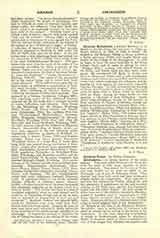

Abrahamites.—(1) Syrian heretics of the ninth century. They were called Brachiniah by the Arabs, from the name of their head, Ibrahim, or Abraham of Antioch. They denied the Divinity of Christ, and were looked on by some as allied to the Paulicians.—(2) A sect of Bohemian Deists. They claimed that they held what had been Abraham‘s religion before his circumcision. They believed in one God, but rejected the Trinity, original sin, and the perpetuity of punishment for sin, and accepted nothing of the Bible save only the Ten Commandments and the Lord’s Prayer. On their refusal to adopt some one of the religions tolerated in Bohemia, Joseph II banished them to Transylvania in 1783. Some became converted later on to the Catholic Faith. There are still found in Bohemia some whose religious belief suggests that of the Abrahamites.—(3) Martyrs in the time of the Byzantine Emperor Theophilus, when a persecution of Catholics took place on account of the revival of the heresy of the Iconoclasts. At this time there was a monastery of monks in Constantinople called St. Abraham‘s. When the Emperor called on them to renounce the cult of holy images they defended the practice with great zeal, and were consequently subjected (832) to martyrdom.
JOHN J. A’ BECKET

